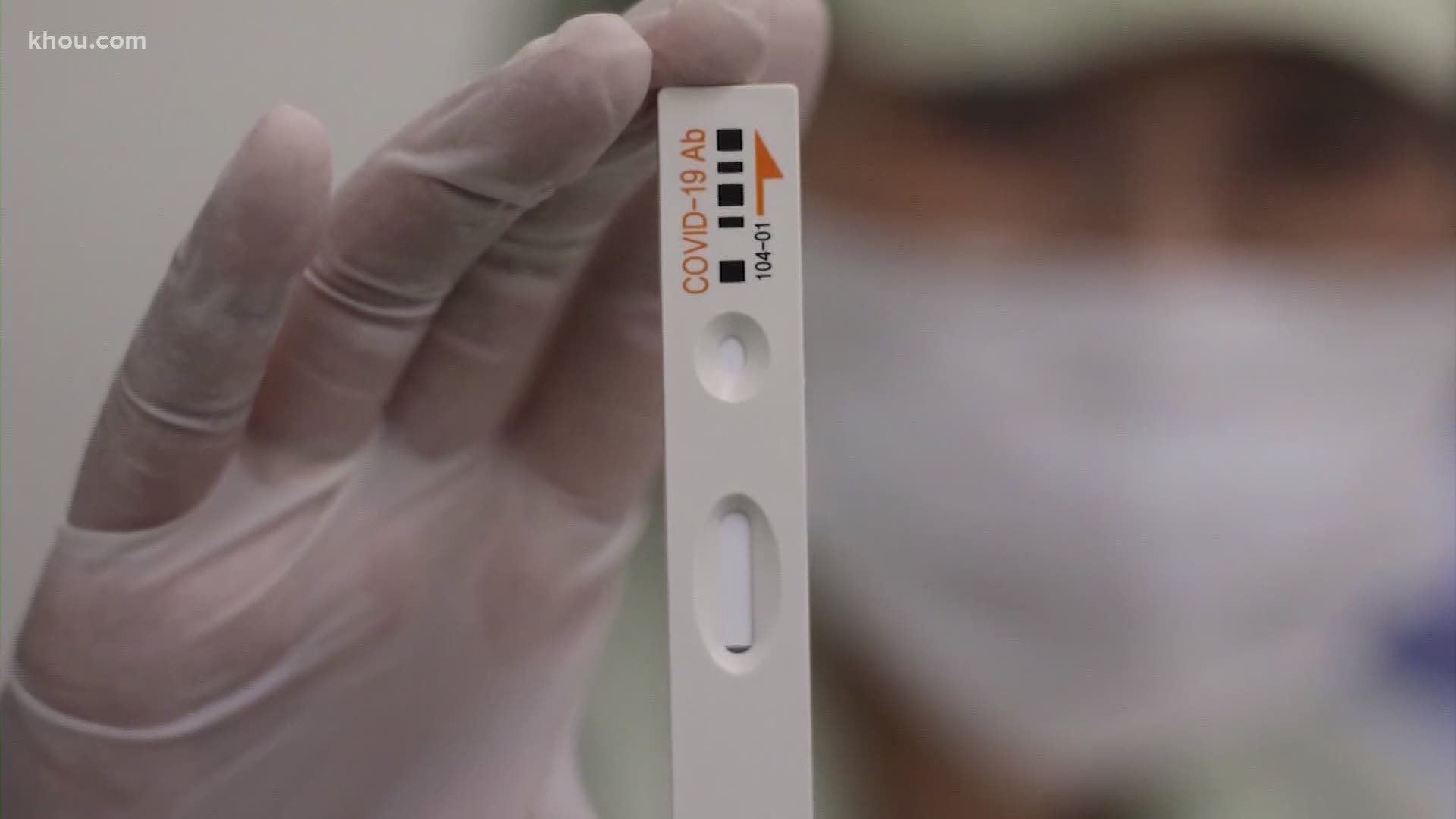HOUSTON, Texas — As Harris County businesses get ready to reopen, county commissioners will hire more than 40 contact tracers to help control the spread of COVID-19.
On the frontlines are epidemiologists with Harris County Public Health who work as detectives investigating and tracking positive cases.
The fight against the novel coronavirus has completely changed the way epidemiologists do their jobs.
Genevieve, one of the epidemiologists, said they’re strictly working on COVID-19 cases.
“It’s 12 hours a day, seven days a week sometimes,” she said. “It’s a lot, but it’s a rewarding experience because we get to help so many people.”
The epis—as they’re known—use contract tracing to find positive cases. They also figure out who that person came in contact with or who may have transferred the disease to them.
“Their close contacts, family members, coworkers and try and get them to either isolate themselves or get tested themselves so we can stop the spread of the disease,” Genevieve said.
They’re in constant contact with patients throughout their 14-day quarantine.
Lead epidemiologist Jerry said, however, a new app lets people report their own symptoms, which is saving epis valuable time.
“They put in their temperature. They answer some yes-no questions about their symptoms and also whether or not they need us to contact them,” Jerry said.
The job can take a toll on them so they have resources to help them cope, such therapy dogs.
They know their roles in this ongoing battle against the virus is more important than ever.
Coronavirus symptoms
The symptoms of coronavirus can be similar to the flu or a bad cold. Symptoms include a fever, cough and shortness of breath, according to the Centers for Disease Control. Some patients also have nausea, headaches and stomach issues.
Most healthy people will have mild symptoms. A study of more than 72,000 patients by the Centers for Disease Control in China showed 80 percent of the cases there were mild.
But infections can cause pneumonia, severe acute respiratory syndrome, kidney failure and even death, according to the World Health Organization. Older people with underlying health conditions are most at risk for becoming seriously ill. However, U.S. experts are seeing a significant number of younger people being hospitalized, including some in ICU.
The CDC believes symptoms may appear anywhere from two to 14 days after being exposed.
Human coronaviruses are usually spread through...
- The air by coughing or sneezing
- Close personal contact, such as touching or shaking hands
- Touching an object or surface with the virus on it, then touching your mouth, nose or eyes before washing your hands.
Help stop the spread of coronavirus
- Stay home when you are sick.
- Eat and sleep separately from your family members
- Use different utensils and dishes
- Cover your cough or sneeze with your arm, not your hand.
- If you use a tissue, throw it in the trash.
- Follow social distancing
Lower your risk
- Wash your hands often with soap and water for at least 20 seconds. If soap and water are not available, use an alcohol-based hand sanitizer.
- Avoid touching your eyes, nose, and mouth with unwashed hands.
- Avoid close contact with people who are sick.
- Clean and disinfect frequently touched objects and surfaces.
- If you are 60 or over and have an underlying health condition such as cardiovascular disease, diabetes or respiratory illnesses like asthma or COPD, the World Health Organization advises you to try to avoid crowds or places where you might interact with people who are sick.
Get complete coverage of the coronavirus by texting 'FACTS' to 713-526-1111.

